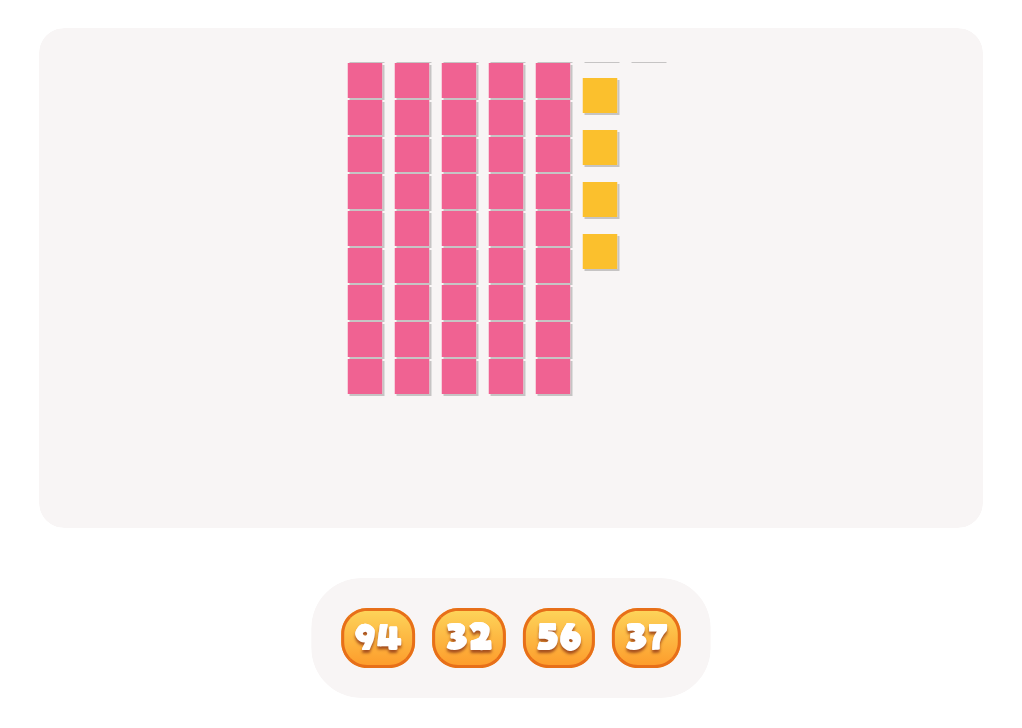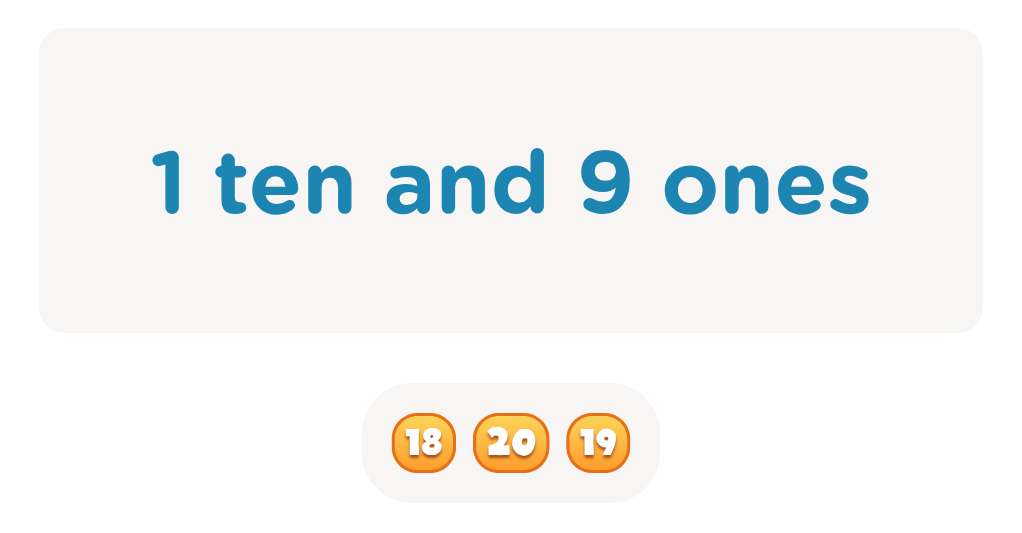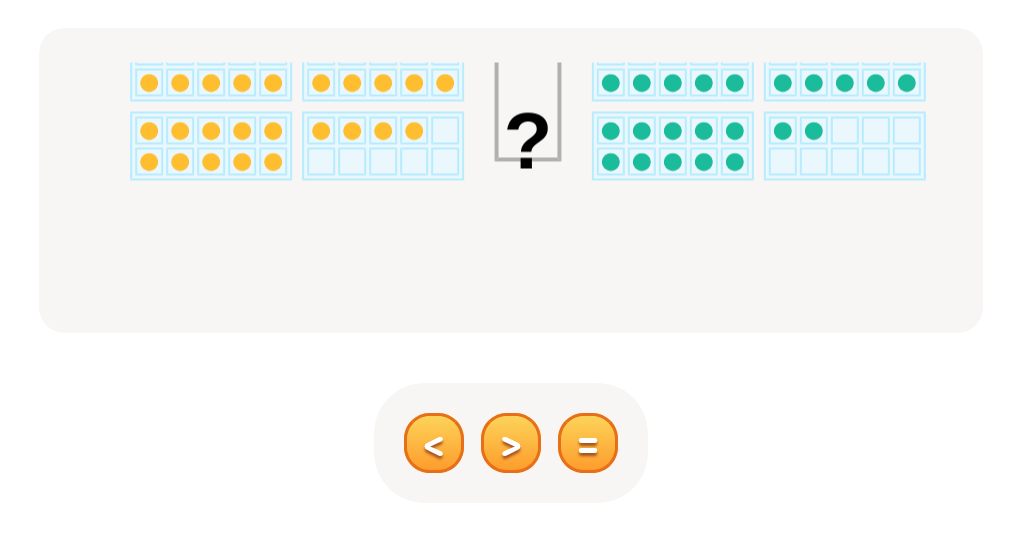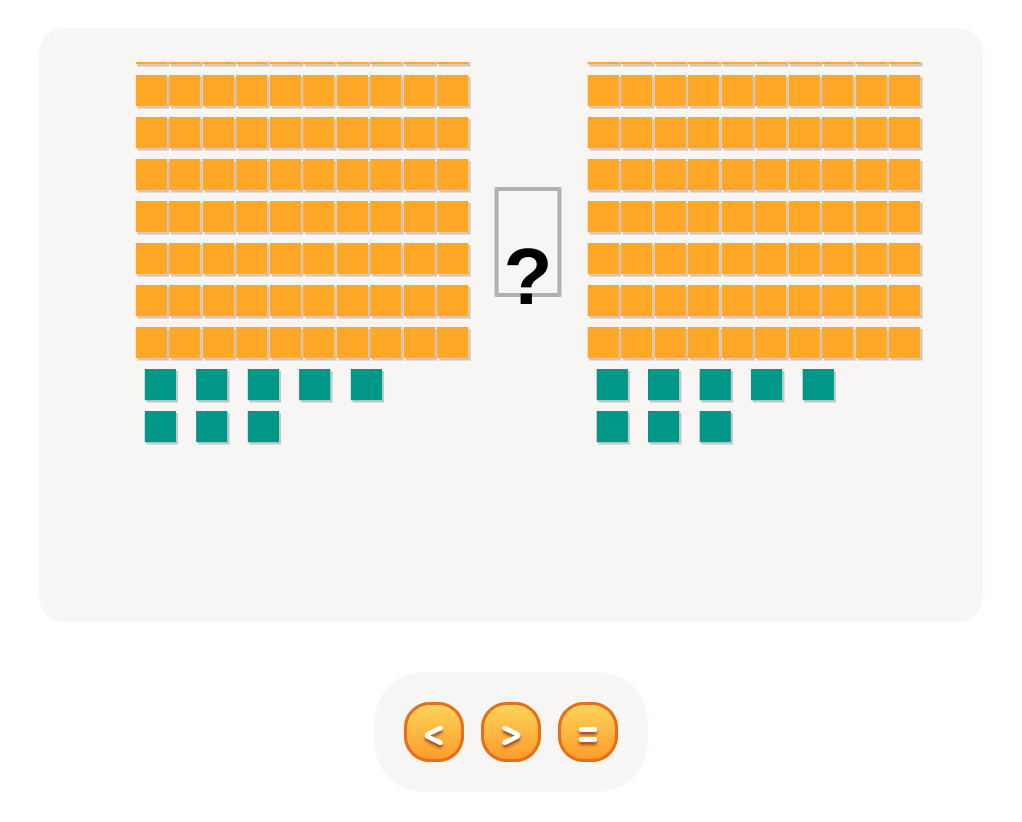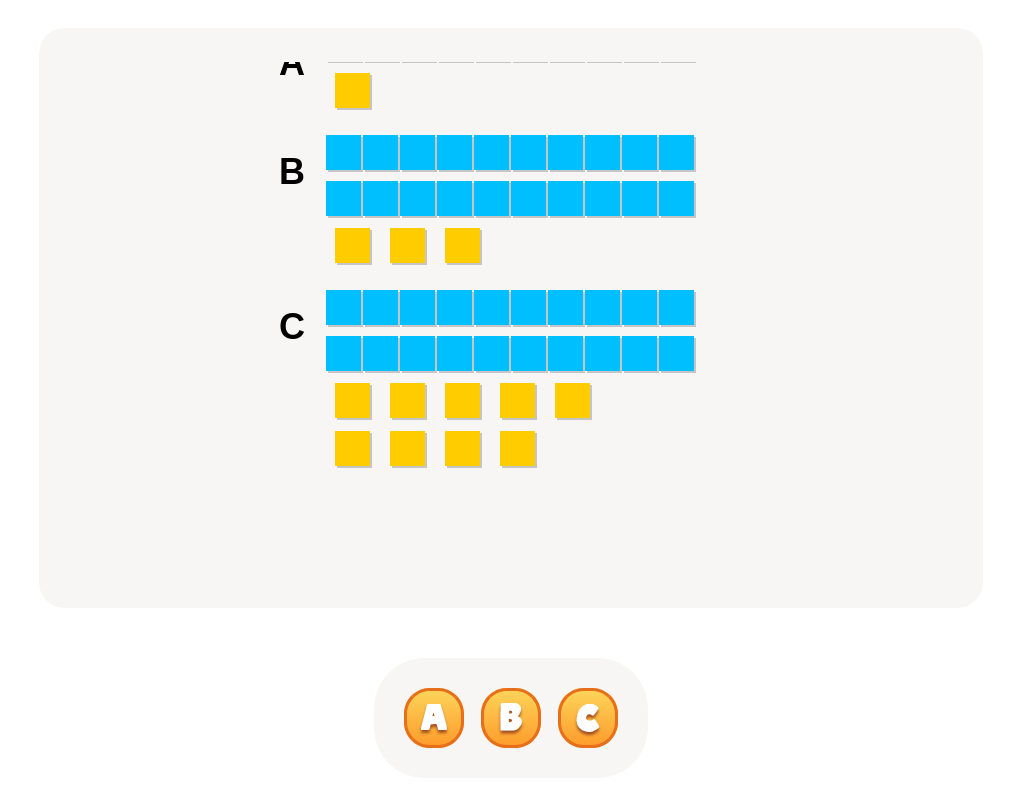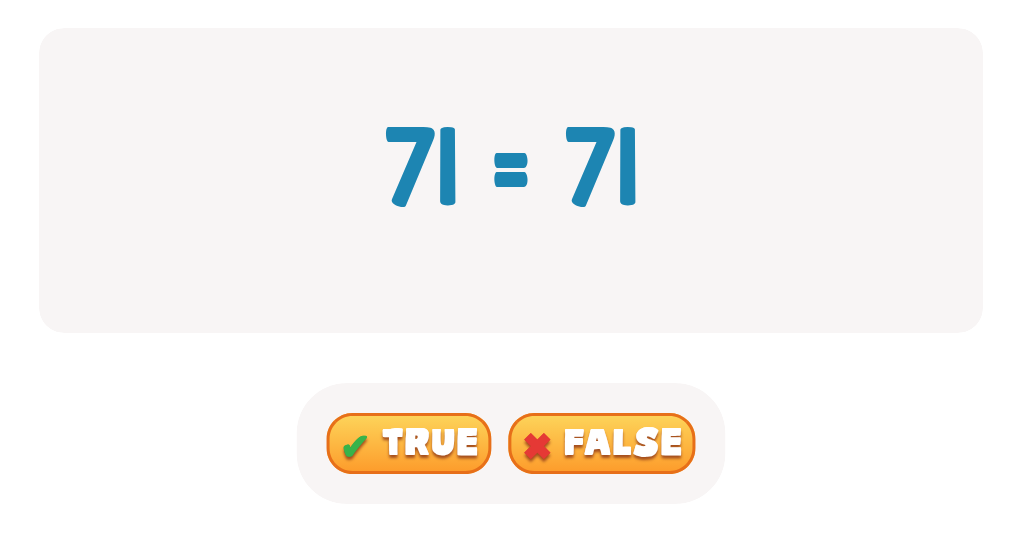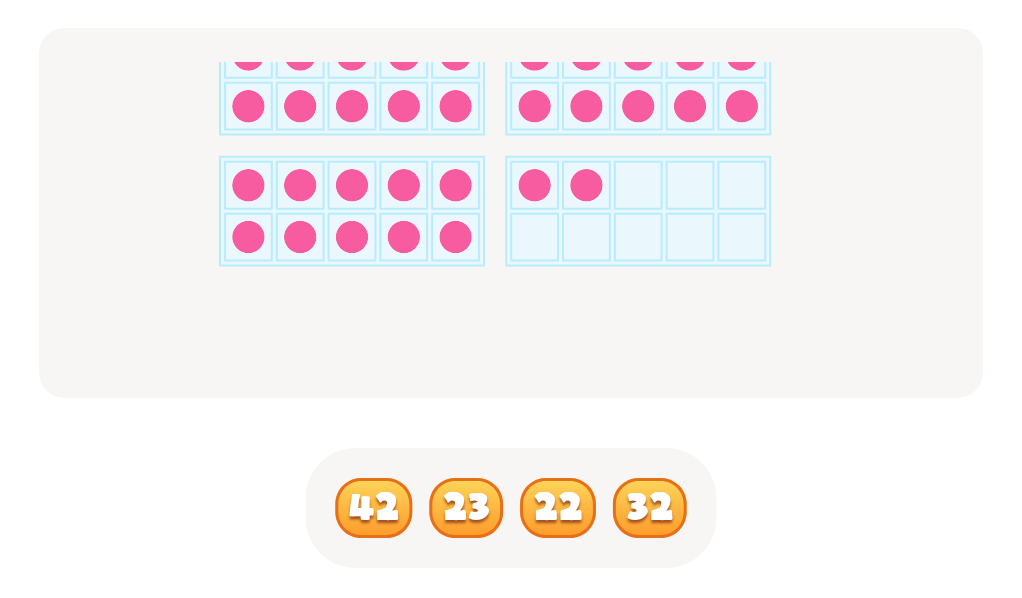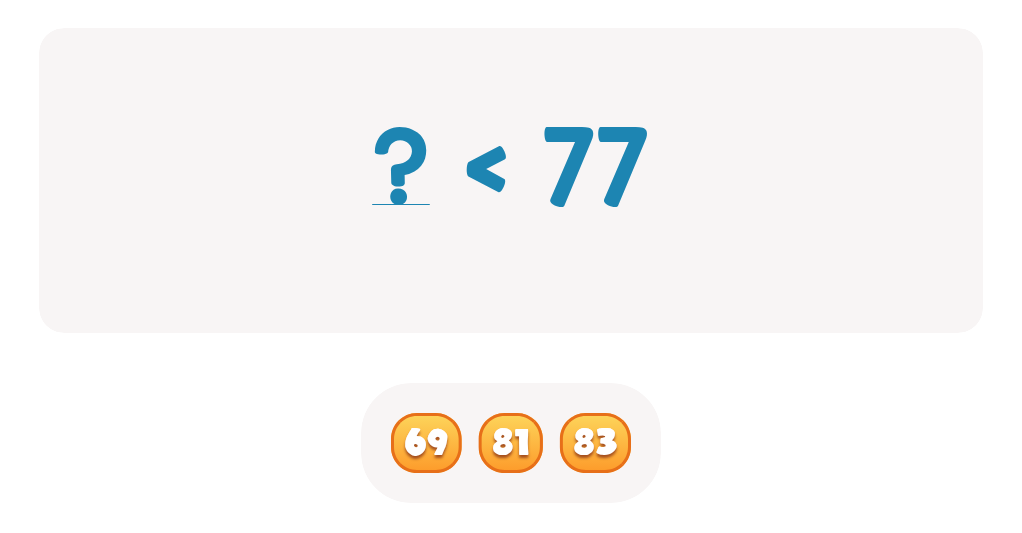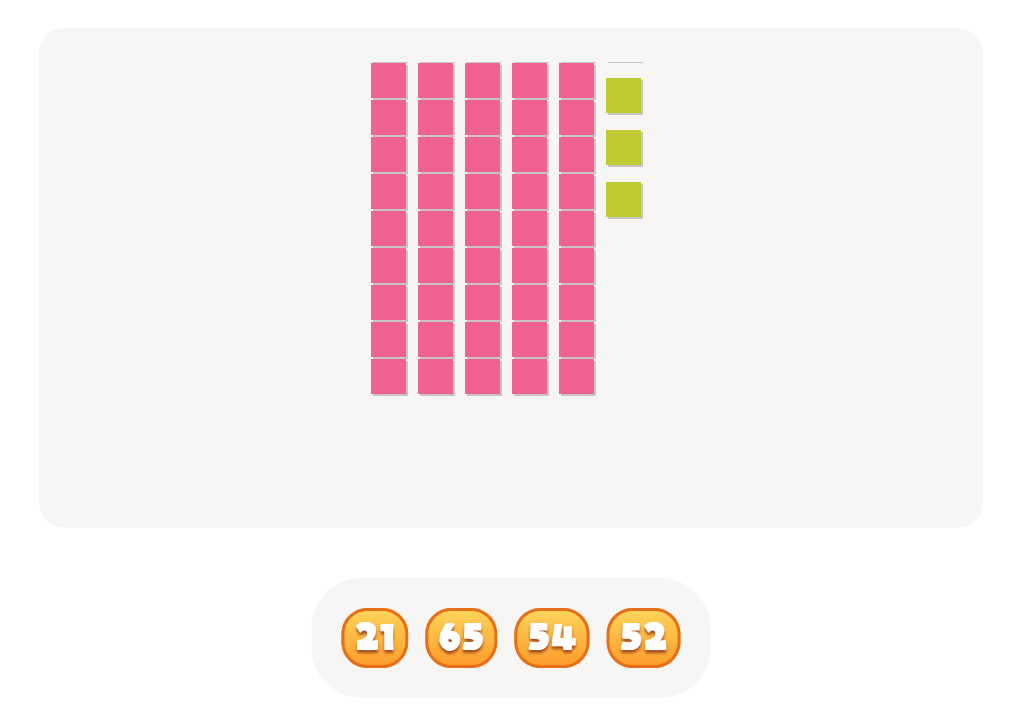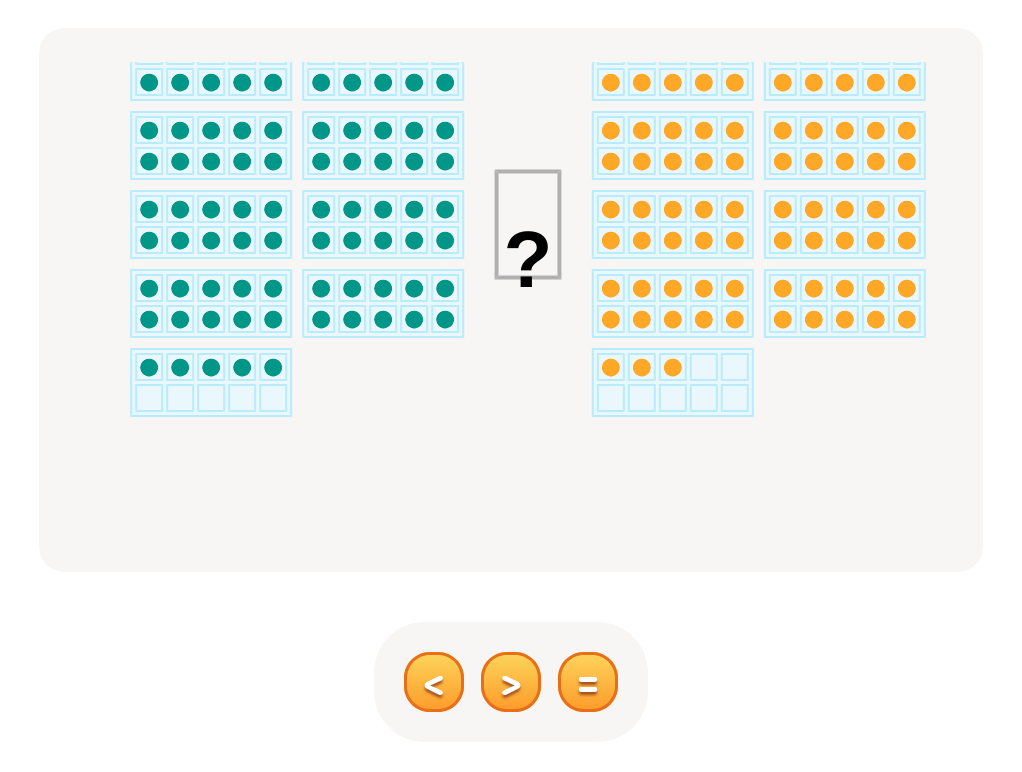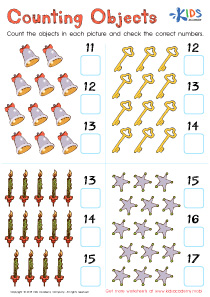Enhancing addition skills Normal Place Value Worksheets for Ages 3-8
3 filtered results
-
From - To
Boost your child's addition skills with our Normal Place Value Worksheets, perfect for kids aged 3-8! Designed to align with early educational standards, these worksheets engage young learners in fun, hands-on activities that build a strong foundation in place value and addition. Whether your child is just starting to understand numbers or needs extra practice, these age-appropriate exercises support their growth and confidence. Download today from Kids Academy and watch your little one's mathematical abilities flourish. A bright future in math begins with a solid grasp of place value concepts enhanced through our engaging worksheets!
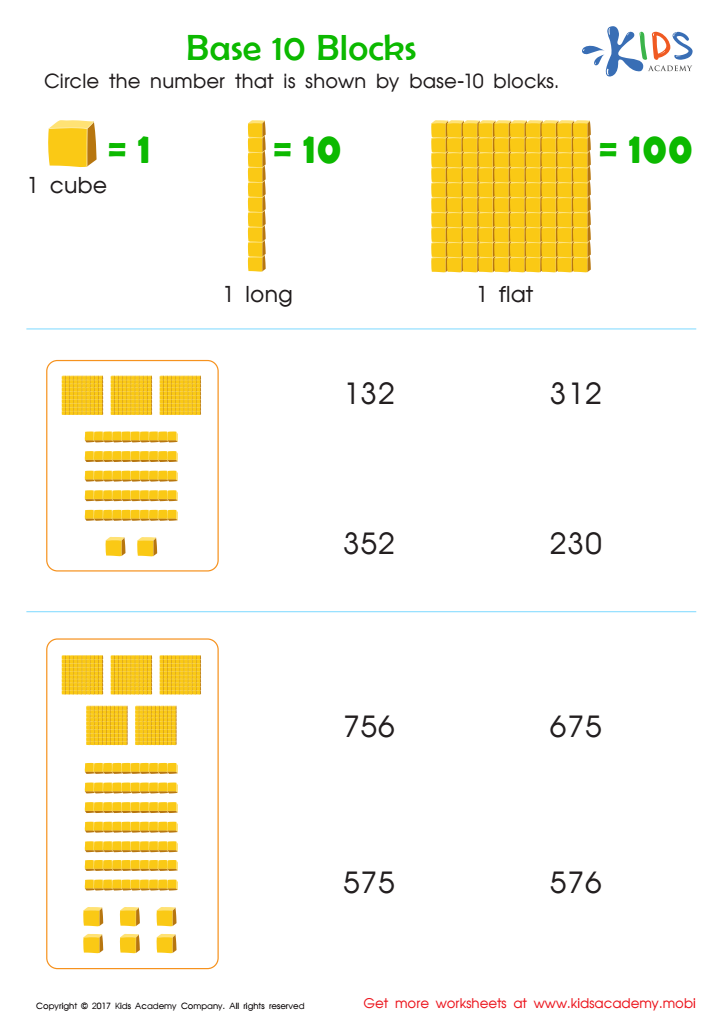

Base Ten Blocks Worksheet
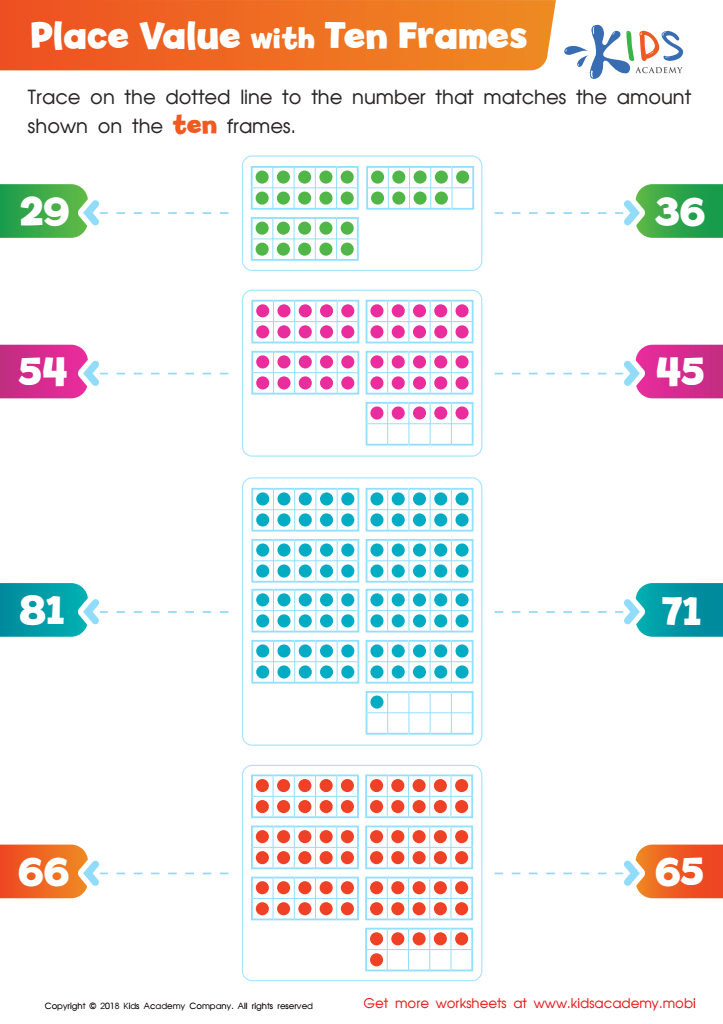

Place Values with Ten Frames Worksheet
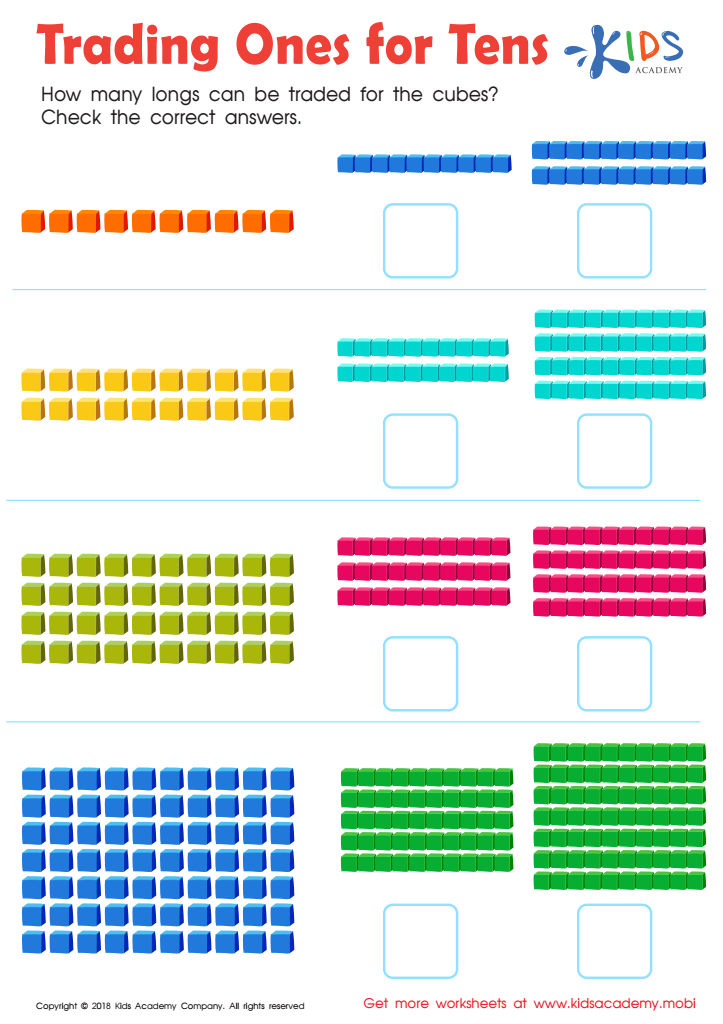

Trading Ones for Tens Worksheet: Part 2
Enhancing addition skills and understanding normal place value for children aged 3-8 is fundamental for several reasons. Developing a solid foundation in these areas sets the stage for future success in mathematics and overall academic achievement. At this age, children's brains are exceptionally receptive to new information, making it an ideal time to introduce and reinforce basic math concepts.
Addition skills are the cornerstone of more complex mathematical operations. By mastering these early, children gain confidence and reduce math anxiety, fostering a positive attitude towards learning. It's not just about getting the right answers; it's about understanding the process, which builds problem-solving skills and logical thinking.
Place value is equally crucial as it aids children in grasping the true value of numbers and understanding how our numbering system works. For instance, knowing that the digit '5' in '50' represents fifty units, not just five, is essential for comprehension of larger numbers and arithmetic operations like addition, subtraction, multiplication, and division.
Teachers and parents play a critical role by providing engaging and supportive learning environments that use hands-on activities, visual aids, and real-world scenarios to make these concepts relatable. When children develop a robust understanding of addition and place value early on, they are more likely to excel in higher-level math and other STEM-related subjects in the future.
 Assign to My Students
Assign to My Students
